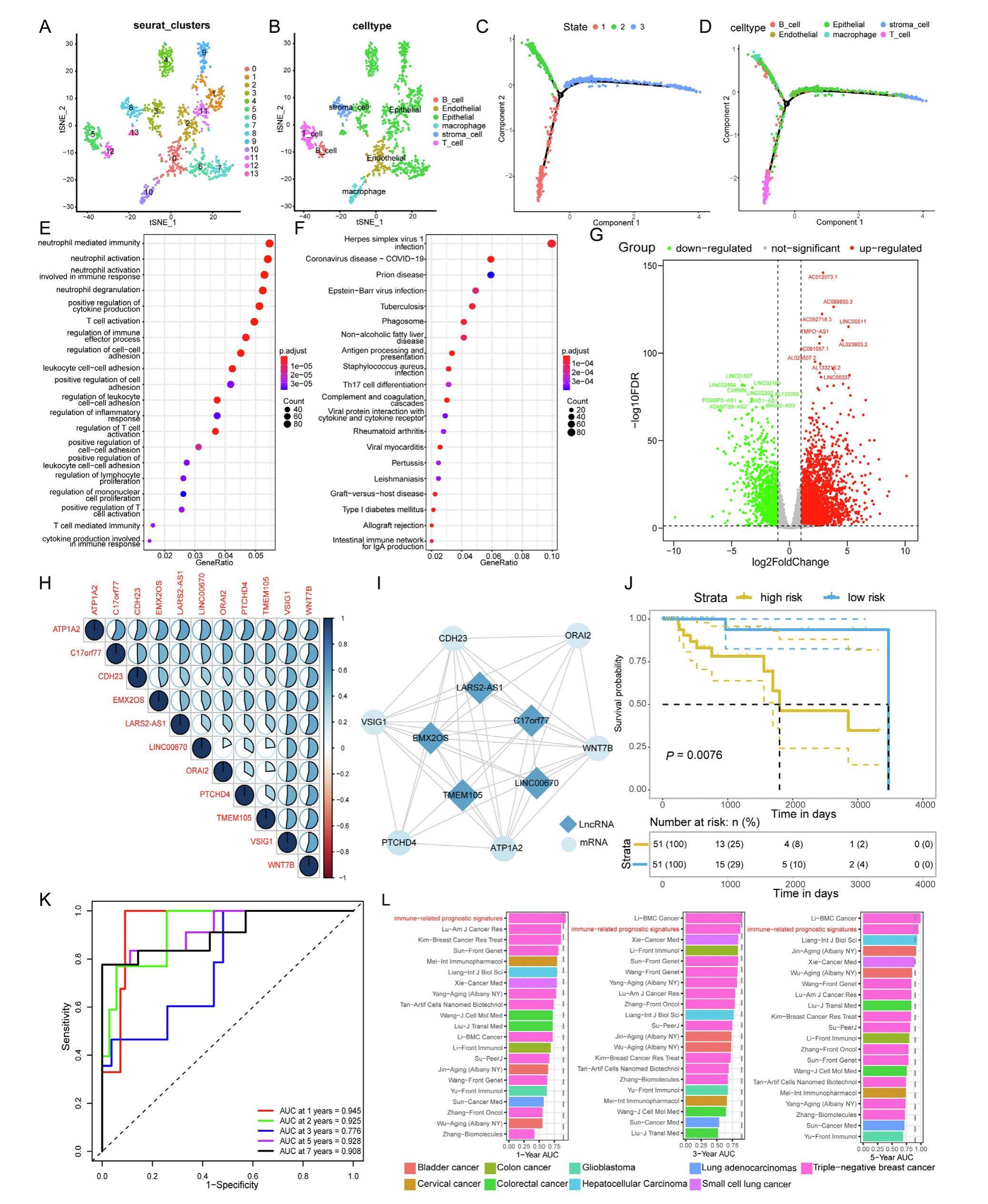
Integrated analysis of single-cell and bulk RNA sequencing data reveals immune-related lncRNA-mRNA prognostic signature in triple-negative breast cancer


Triple-negative breast cancer (TNBC) is an aggressive subtype characterized by extensive tumor heterogeneity, with limited treatment options and a poor prognosis. We used cell type annotation and trajectory analysis to identify two distinct differentiation states of epithelial cells, while tumor cells predominantly resided on one of these branches. Inferring the malignant state of epithelial cells based on copy number variation, 280 tumor cells were eventually identified from epithelial cells. Differential genes between tumor cells and non-tumor cells were mainly enriched in immune-related functions and pathways. To explore the immune roles of differential genes, we finally identified 106 key lncRNAs and mRNAs associated with immune processes by integrating single-cell and bulk RNA-seq data from TNBC. Moreover, based on the LASSO-COX prognostic model, we systematically identified five lncRNAs and six mRNAs that were significantly associated with TNBC survival. The immune-related 11 lncRNA-mRNA signature can be used as a prognostic signature to independently divide the overall survival time of patients. Our immune-related prognostic signature has prognostic significance for 15 cancers and exhibited excellent predictive performance compared to the 20 prognostic models, indicating that it may have clinical value in improving the overall survival of patients.
